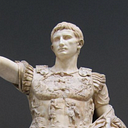Talking Past Each Other: How Semantics Complicates Politics
One of the thornier issues in linguistics is how to define words as their meanings shift over time, or even between people who perceive them differently. “Nice,” for example, used to mean stupid (Spanish necio still does), and had a whole range of vague meanings before settling on the one we now use. In business today, one person might call his or her boss a “chairman” completely innocently, but some colleagues would find that sexist.
Shifting definitions can cause confusion or even some offense, but it is rarely a serious problem. In the realm of politics, however, semantics can be a matter of life or death. In America, for example, nine judges in Washington regularly decide whether a condemned criminal will go to the gallows based on the way each chooses to define “cruel and unusual punishment.”
In more abstract matters, things can get even tetchier. It is fashionable in Europe and America to tar one’s political opponents as anti-democratic. Ironically, the founding fathers of modern politics, from Aristotle to Thomas Jefferson, would have embraced that label: to them, “democracy” meant something akin to lawless mob rule. Today, almost everyone agrees it is a paramount political virtue. But people do have different feelings about what democracy means.
Look at Poland, for example. The government in Warsaw is frequently under fire for eroding “democratic norms,” for example judicial independence and gay rights. Both sides are vexed that the other is undermining democracy. For the EU, true democracy necessarily includes such liberal values. But if the majority of the Polish people vote freely to have their government tear down those values, is that not also democratic?
Poland’s is not the only alternative vision of democracy. In the West, it is obvious that communist China, where votes and political rights count for nothing, is not very democratic. But Chinese leaders argue that they are proletarians who represent the will of nation, and deliver better results than regimes that divide citizens and radically change course every few years. “Democracy” means rule of the people- etymologically, it does not require voting.
Another key question, relating both to China and to politics within the West, is what “capitalism” means. Debates over capitalism and socialism are more de rigueur today than they have been in generations, but both sides are generally too busy yelling to define either term.
Idealistic university students are infuriated that their countrymen do not want to make America or Britain more like prosperous, egalitarian “socialist” Denmark and Norway (neither of whose citizens identify their countries as socialist). Their opponents are horrified that they want to plunge us into collectivist tyranny à la Venezuela or East Germany.
Unfortunately, after generations of such ill-tempered discourse, both terms (as well as “communism”) are so mangled semantically as to be almost meaningless. Karl Marx defined socialism as an intermediate phase before communism, but it is construed by men from Xi Jinping to Jeremy Corbyn to Ben Shapiro to mean entirely different things. During the Cold War, the Union of Soviet Socialist Republics was the leader of global communism; today, the Chinese Communist Party is the most successful capitalist organization on the planet.
Marx also invented the term “capitalism,” conjuring an economic system out of what had previously just been the laissez-faire flavour of the economic activity everyone took for granted. The very concept of the “economy” is a pretty modern one as well. Our forebears did not really distinguish between the material wellbeing of a kingdom, and the virtue of its rulers.
Nor did anyone outside Europe draw a sharp lexical distinction between spiritual beliefs and public life. The concept of “religion” as a sphere that can be extricated from politics and social relations dates to the peculiar history of early Christianity in the shadow of Rome. In the modern era, India and China have embraced this way of thinking. But in dozens of countries today, it is bloodily controversial whether it is possible for a government or society to be legitimate if it is not ruled by Islam.
Conversely, some non-Western concepts do not translate the other way. For example, Xi Jinping is referred to in English as China’s “president,” but in Chinese, his title is “state chairman,” closer to Mao Zedong than Joe Biden. We call Japan’s monarch an emperor, but it helps explain Japanese history and even present society to learn that the Japanese word for him is “Heaven King.”
Some semantic shifts are happening before our eyes. “Racism” traditionally meant treating any group differently based on race, but now many on the left insist that the term applies only to oppression of people of colour. In the past year, right-wing Americans have gotten similarly innovative: they aver that an election can be “rigged” by biased media and tech and new voting procedures, without anyone actually defrauding votes.
In such a fast-changing area of our lexicon, both sides can marshal as much passion and logic as they like, and still get nowhere because they and their opponents never agreed on the fundamental terms of the debate. Today’s discourse too often devolves into something akin to an Englishman playing his version of football against an American playing his. When we cannot even agree on what words mean, is it any wonder that politics is so divisive?
